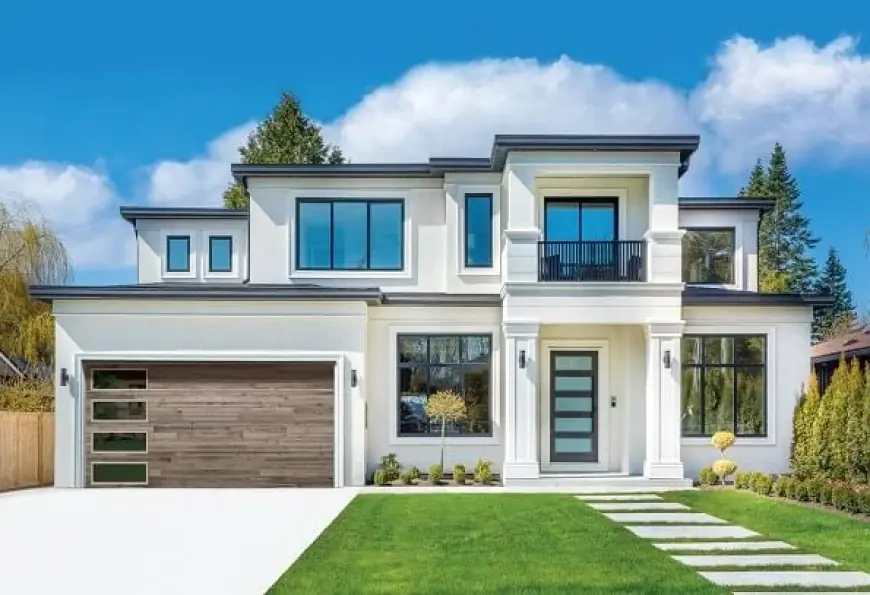My Garage Door – Everything You Need to Know
A garage door is an essential part of any home, providing security, convenience, and even enhancing curb appeal.

A garage door is an essential part of any home, providing security, convenience, and even enhancing curb appeal. Whether you're installing a new one, maintaining an existing one, or dealing with repairs, understanding the basics of my garage doors can save you time and money. In this article, we’ll explore different types of garage doors, common issues, maintenance tips, and when to seek professional help.
Types of Garage Doors
There are several types of garage doors available, each with unique features and benefits:
-
Sectional Garage Doors – The most common type, made of panel sections that move up and down along tracks.
-
Roll-Up Garage Doors – Ideal for commercial settings, these doors roll into a coil above the opening.
-
Side-Hinged Garage Doors – Traditional doors that swing open like barn doors.
-
Tilt-Up Garage Doors – A single panel that tilts upward and outward when opening.
-
Slide to the Side Garage Doors – These doors slide horizontally to one side and are great for garages with low ceilings.
Each type has its own advantages depending on your garage size, space availability, and personal preference.
Common Garage Door Issues and Fixes
Garage doors experience wear and tear over time. Here are some common problems and solutions:
-
Door Won't Open or Close – Check the remote batteries, sensors, or track obstructions.
-
Noisy Operation – Lubricate moving parts and inspect rollers for damage.
-
Slow Response Time – May indicate issues with the opener or need for lubrication.
-
Broken Springs – A dangerous issue that requires professional repair.
-
Sagging or Off-Track Doors – Ensure the tension is even, or call a technician for realignment.
-
Garage Door Opens and Closes Randomly – This could be due to faulty wiring or remote interference.
-
Damaged or Warped Panels – Extreme weather conditions can warp panels, requiring replacement.
-
Garage Door Remote Not Working – Try reprogramming the remote or checking for interference from nearby devices.
Garage Door Maintenance Tips
Regular maintenance keeps your garage door in top condition:
-
Inspect and tighten hardware regularly to avoid loose parts.
-
Lubricate moving parts every few months to prevent friction.
-
Test the balance by disconnecting the opener and manually moving the door.
-
Check and replace weatherstripping to improve insulation.
-
Test safety features like auto-reverse sensors.
-
Clean the garage door surface to prevent rust and damage.
When to Call a Professional
While some repairs can be DIY-friendly, issues like broken springs, misaligned tracks, or malfunctioning openers often require expert assistance. Hiring a professional ensures safety and prevents further damage.
A well-maintained garage door enhances safety, security, and home value. By understanding different types, troubleshooting problems, and following proper maintenance, you can keep your garage door functioning efficiently for years to come.
My Garage Door – Enhancing Security, Functionality, and Style
Your garage door does more than just protect your car – it adds to your home’s security, efficiency, and aesthetic appeal. Whether upgrading, repairing, or maintaining it, understanding your options and best practices can make a huge difference. Let’s explore how to get the most out of your garage door.
Choosing the Right Garage Door
Selecting the best garage door depends on various factors:
-
Material – Steel (durable), wood (classic appeal), aluminum (lightweight), fiberglass (resistant to moisture), or composite (a blend of benefits).
-
Insulation – Helps with energy efficiency and temperature control.
-
Style and Design – Modern, carriage-house, or traditional styles to match your home.
-
Security Features – Smart locks, rolling code technology, and reinforced panels for added safety.
How to Improve Garage Door Security
A secure garage door protects your home from intruders. Follow these tips:
-
Install a smart garage door opener with remote monitoring for added security.
-
Use a deadbolt or side lock for extra protection when you're away.
-
Cover windows to prevent burglars from seeing inside your garage.
-
Upgrade to rolling code technology to prevent hacking attempts.
-
Ensure regular maintenance to avoid vulnerabilities.
-
Secure the emergency release cord to prevent break-ins using coat hanger tricks.
Smart Technology for Modern Garage Doors
Advancements in technology have improved garage doors significantly:
-
Wi-Fi-Enabled Openers – Control your garage door remotely using your smartphone.
-
Motion Sensors – Detect movement for added security and automatic lighting.
-
Backup Batteries – Keep the door functional during power outages.
-
Automatic Closing Features – Prevent leaving the door open accidentally.
-
Integration with Home Security Systems – Connect your garage door with smart home devices.
Common Signs You Need a New Garage Door
If your garage door shows these signs, consider a replacement:
-
Frequent repairs leading to high maintenance costs.
-
Lack of insulation causing energy loss and higher bills.
-
Visible wear and tear affecting the curb appeal of your home.
-
Safety concerns due to outdated technology or structural weakness.
-
Loud noises during operation indicating worn-out components.
Garage Door Energy Efficiency
A well-insulated garage door can improve your home's energy efficiency by reducing heat loss in winter and keeping the garage cooler in summer. Consider these tips:
-
Choose doors with polyurethane or polystyrene insulation for maximum efficiency.
-
Ensure proper weather sealing to minimize drafts.
-
Use energy-efficient garage door openers with minimal power consumption.
Conclusion
Your garage door is a crucial part of your home’s security and functionality. Investing in the right door, maintaining it properly, and leveraging modern technology ensures it remains a reliable asset. Whether you’re troubleshooting an issue, considering an upgrade, or exploring smart features, a well-managed garage door enhances safety, convenience, and home value.
By following these guidelines, you can extend the lifespan of your garage door while improving efficiency and security, making it a valuable investment for any homeowner.

 raquelbritzke
raquelbritzke 










